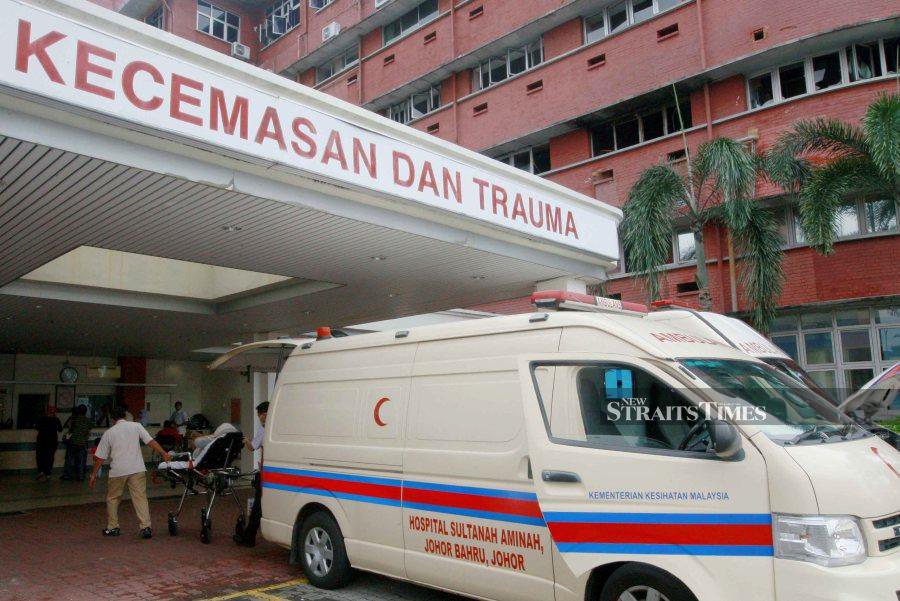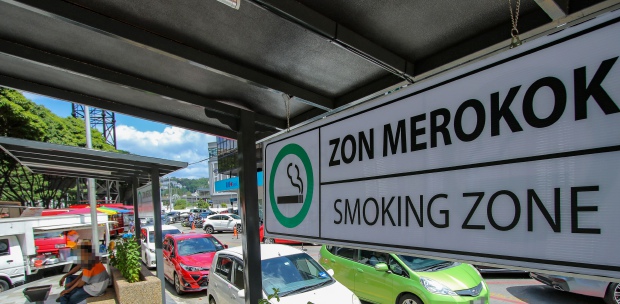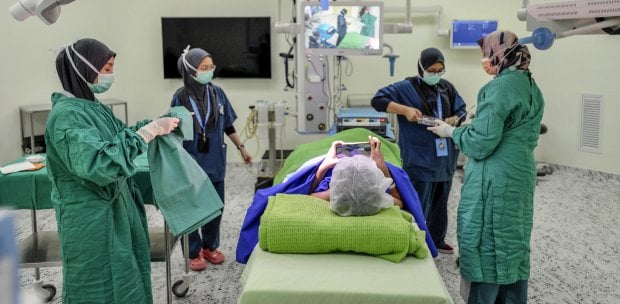KUALA LUMPUR: The health manifestos by Barisan Nasional (BN), Pakatan Harapan (PH) and Perikatan Nasional (PN) appear to outline a positive vision for a modern and resilient health system, but they fall short on detail in key areas.
Malaysian Medical Association president Dr Muruga Raj Rajathurai criticised the three major coalition's pledge to allocate five per cent of the country's gross domestic product (GDP) for public healthcare.
BN is seeking to double the annual public healthcare allocation from RM36 billion to RM77 billion by 2027. PH aims to increase the expenditure in five years, and PN seeks to do so "in stages".
Dr Muruga rightly pointed out that a gradual increase towards five per cent of the GDP had been promised even before the 15th General Election was called.
"How is the manifesto any different? Anything can happen in five years. People want to see reforms and changes now, not wait another five years. What is the planned budget for next year?
"Only then can we gauge the level of commitment towards reforms," he told the New Straits Times.

The Health Ministry had earlier proposed a Health White Paper (HWP), which seeks to future-proof the healthcare system and address the imbalance in resource allocation, among others.
Health Minister Khairy Jamaluddin had in August highlighted the need to develop primary care services in order to address the burgeoning burden of non-communicable diseases, with a commitment to allocate more resources for primary care services.
This, Khairy said, should start with a doubling of Malaysia's total public health spending from the current 2.58 per cent of GDP (in 2020) to five per cent of GDP as recommended by the World Health Organisation (WHO).
Dr Muruga said it should be made clear how the five per cent will be spent. From this, a sizeable amount should be allocated to enhance primary care in both the public and private healthcare sectors with an emphasis on prevention, he said.
As healthcare needs are increasing and Malaysia will soon be reaching ageing nation status, he believes the five per cent allocation might not be the recommended healthcare expenditure in five years.
Dr Muruga shared that the MMA had written to the three main political coalitions to invite them for a briefing on all the issues in Malaysia's healthcare system ahead of them preparing their manifestos.
"We can confirm that the BN chairperson has met with us and PH leader Datuk Seri Anwar Ibrahim has acknowledged the invite we sent. We did not get any reply from the leaders of PN."
The MMA had identified critical issues affecting Malaysia's healthcare system that warrant urgent intervention from political leaders.
Dr Muruga said manpower should be increased and more healthcare facilities should be developed in areas that need them most.
"We also need more training hospitals and support for our junior doctors' career pathway. They are our future senior doctors and specialists."
Further, he stressed the need to resolve the problem of contract doctors and permanent positions, which he opined could be done by offering at least 5,000 permanent posts for contract doctors each year.
"Committing to giving 1,500 permanent positions per year will not be sufficient when around 3,000 new medical graduates enter the public healthcare system each year.
"Even the 3,000 over positions given this year was insufficient. There are currently around 18,000 medical officers on contract in the system."
Dr Muruga said whoever comes into power needs to have a clear vision of what Malaysia wants to achieve for its healthcare system in five, 10 and 20 years, which should not be affected by any political change.
This vision, he said should include proper planning of human resources and infrastructure.
The authorities should also be looking at more public-private partnerships to ease overcrowding at public healthcare facilities and address the issue of burnout among many public healthcare workers, he noted.
"There are over 8,000 private GPs nationwide who can assist the government with a number of primary care services especially in the area of preventive care."
In addition, Dr Muruga said digitalisation and electronic medical records (EMRs) were areas that need to be given emphasis.
"We should also be looking into the use of apps for certain public healthcare services, such as booking appointments with specialists."






